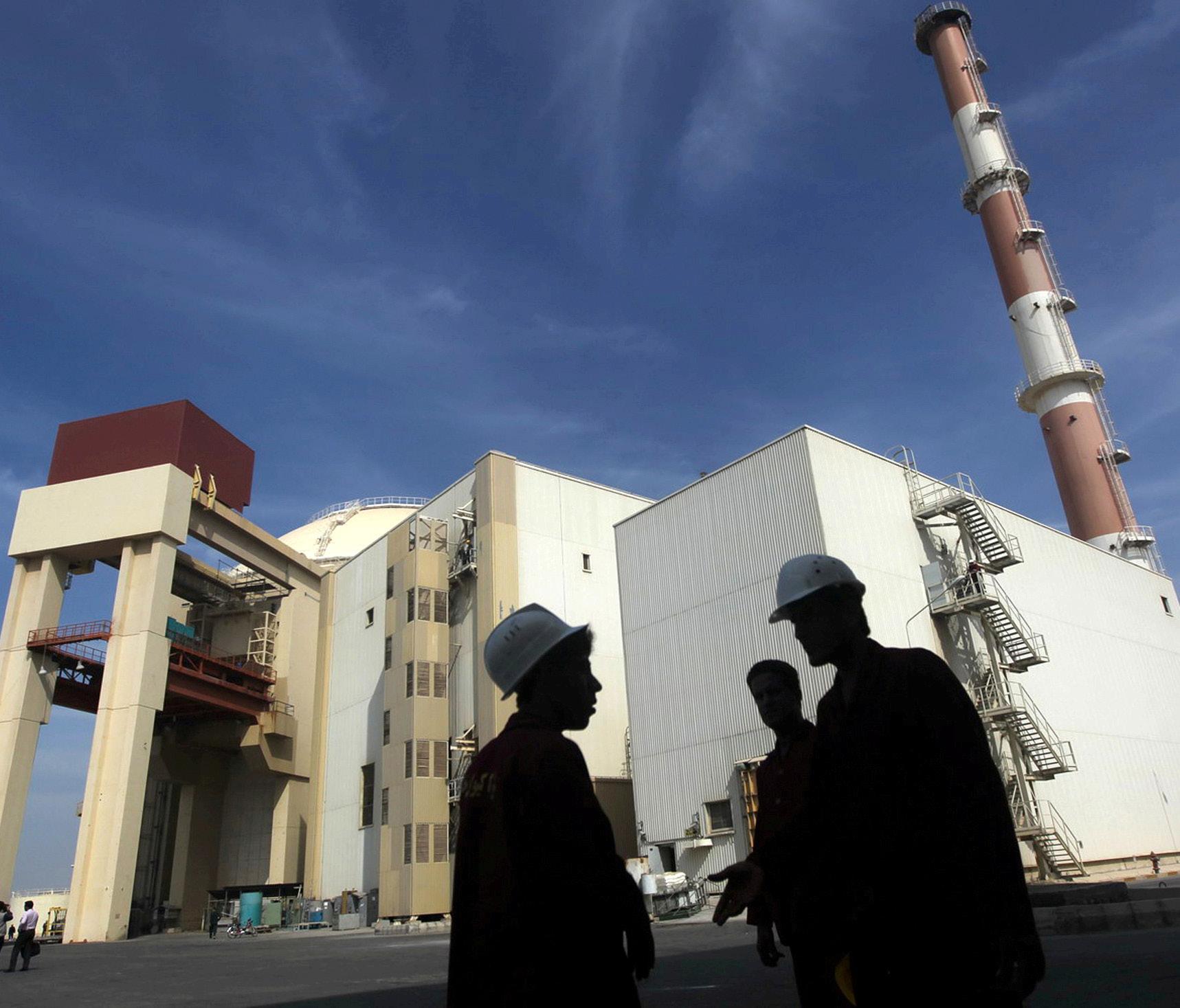
3 minute read
Eye on the Middle East Nuclear Iran Looms Large
NUCLEAR IRAN LOOMS LARGE
Israeli Energy Minister Yuval Steinitz recently estimated Iran is a year or two away from building a nuclear bomb. “If they do everything to break out in terms of enrichment, it will be half a year to produce the needed materials; in terms of nuclear weapons, they are a year or two away,” he said.
Steinitz’s estimate coincides with comments made by U.S. Secretary of State Antony Blinken who predicted months ago Iran was three or four months away from being able to produce enough fissile material to build a nuclear weapon. He said the timeframe could be reduced to “a matter of weeks” if Tehran continues violating the restrictions it agreed to under the 2015 nuclear deal with the United States, China, Russia, Britain, France, and Germany.
Blinken noted it would take Iran more than six months to build an actual nuclear weapon. “The bottom line is they are getting closer to the point where they would be either a threshold nuclear power, or actually a nuclear power,” he said. “That is profoundly against our interests.”
The Biden administration has pledged to reverse the Trump administration’s withdrawal from the nuclear deal negotiated by the Obama administration. Also known as the Joint Comprehensive Plan of Action, the agreement lifted economic sanctions against Iran in exchange for curbs on its nuclear program.
Former President Donald Trump reimposed many of those sanctions, saying the deal was one-sided and allowed Tehran not only to continue its nuclear program, but also to develop the longrange missiles used to deliver nuclear weapons.
Blinken said the Biden administration is prepared to return to the deal, provided Tehran shows “strict compliance” with it. He also said the United States would try to expand the deal to incorporate a ban on missile development. Iran has shown little interest in returning to the agreement. It has, in fact, announced aggressive measures aimed at making such a return more difficult—or possibly aimed at increasing its leverage ahead of negotiations with the United States.
The Iranian government recently announced it would begin enriching uranium up to 20 percent, possibly boosting it to 60 percent. This level is far beyond the 3.67 percent permitted under the nuclear deal and merely one technical step away from the 90 percent needed for a nuclear weapon.
Tehran also said it was beginning research into uranium metal, which can be used to produce a nuclear warhead, and plans to install 1,000 new centrifuges at the Natanz nuclear enrichment facility. Moreover, Tehran said it would restrict short-notice inspections of suspect nuclear facilities by the International Atomic Energy Agency (IAEA), the United Nations’ nuclear watchdog. IAEA inspectors recently found traces of radioactive material at some nuclear sites in Iran.
Iranian Minister of Intelligence
The Bushehr nuclear power plant in Iran Mahmoud Alavi even went so far as to warn that Iran could develop nuclear weapons if the Biden administration fails to lift the sanctions reimposed by Trump. “If a cat is cornered, it may show a kind of behavior that a free cat would not,” he said. Israel, along with Bahrain and the United Arab Emirates, has voiced strong opposition to the United States rejoining the nuclear deal. Israel Defense Forces Chief of Staff Aviv Kohavi said he has ordered the military to develop operational plans for striking Iran’s nuclear program. “Israel remains committed to preventing Iran from getting nuclear weapons and its position on the nuclear agreement has not changed,” said Israeli Prime Minister Benjamin Netanyahu. “Israel believes that going back to the old agreement will pave Iran’s path to a nuclear arsenal.” by Soeren Kern, a senior fellow at the Gatestone Institute, a nonpartisan foreignpolicy think tank based in New York City







